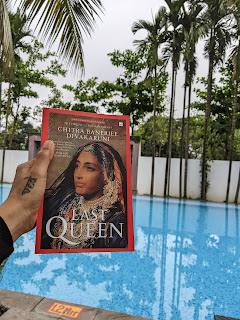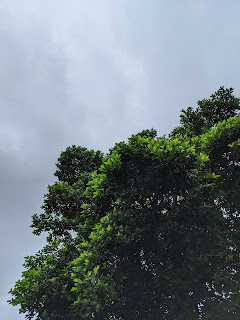Book review- The Last Queen by Chitra Banerjee Divakaruni
“I may be injured; I may even be wounded to the heart, but I’m not defeated yet.”- This is the spirit of the heroine of my latest read “The last queen”.
An un-put-down-able novel by Divakaruni breathes life into the forgotten queen, Jindan Kaur, the youngest wife of Maharaja Ranjit Singh, the glorious ruler who built the powerful Sikh empire at the onset of the nineteenth century. This is my second read for the writer after Palace of illusions
Such a poignant tale of Rani Jindan whose life is like a fairy tale gone wrong. I did not know her story earlier so I feel grateful to learn about the queen, and an additional thanks to Chitra Banerjee Divakaruni, I now am also aware of how our Kohinoor- the diamond landed in hands of the British Queen.
The writer has justified this fictional historical biography by dividing the life of Jidan Kaun (also called Jindan Kaun) into four parts-- 'Girl', 'Bride', 'Queen' and 'Rebel'-- that revive her remarkable life.
“Perhaps we are always alone, from the time we leave the safety of our mothers’ wombs until the time Waheguru gathers us to Himself.”
Born to the royal kennel keeper, the elegant Jindan Kaur married Maharaja Ranjit Singh and became his youngest, beloved, and youngest queen. While she adjusted to her new role of being a Rani and a mother after the wedding, her substantial troubles started when she lost her husband to age-related illnesses. She then navigated her life through cunning courtiers to become a Maharani when her son Dalip was made the King at the age of six. With her sharp acumen and sentiment, Rani Jindan dedicated her life to ensuring Dalip's inheritance of the throne.
What I admired about her is that she was one of the few Indian queens of her time to defy tradition. She stepped out of the zenana (female place to live), cast aside the veil, and conducted state business in public after the demise of the Maharaja. She addressed her audience including the mighty Khalsa Troop and motivated them to go into battles with the British Army whenever they tried encroaching on Punjab. She also openly showed hatred towards the ceremony of Sati Pratha.
“love something—or someone—so much that you would willingly sacrifice yourself. I want to be brave like that.”
Fearing her influence, the British tried to deprive her of everything that she had-- from her kingdom to her son-- but that didn't crush her undying will. In her later years, she lived in exile in Nepal and Britain, where she finally reunited with her son.
Fast-paced and a quick read, the writer managed to maintain Jindan as a real human being by showing that she was flawed and vulnerable, yet fierce and indomitable.
The book is a definite recommendation to those readers who admire Indian history and its historical women warriors.



Brave women always defeats surroundings barriers with their stubborn character, love and williness to change society dakyanusi pratha...we are born to leave happy and secure life not for us even for our beloved..hope this story character makes us or adds our or increase and revive in living life more strongly and powerful..👍
ReplyDeleteThank you for your meaningful comments. Keep checking the blog
DeleteNice 👍🏻
ReplyDelete✌️🙏
DeleteKeep checking the blog for new posts
Nice 👍🏻
ReplyDeleteThank you gal.
Delete